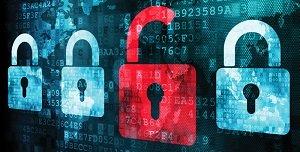A pair of bills has been passed in Congress that will see America’s Homeland Security and cybersecurity engineers working together for the betterment of the cybersecurity situation prevalent in the world today. The interesting distinction to be made here is to notice that Homeland Security will be working with private sector cybersecurity firms. Private security network engineers are understanding more about automation, control and SCADA systems than engineers within the American government. The U.S. actively wants to avoid entire substations being taken down by hackers ; a scenario which has actually happened in countries like the Ukraine. The second bill passed was an act named the Rapid Innovation Act which would see the American government making funds available to research and development for emerging technologies. Smells like the Internet of Things.
Congressman John Ratcliffe said: “With these growing cyber threats posing significant danger to our homeland and infrastructure, it is critical that our government keep pace by actively working with the private sector to find solutions to protect our network.”

One of the biggest targets for cybersecurity is currently banking. Recently, in May, a gang of Japanese criminals made off with $13 million in cash over three hours. They used counterfeit credit cards from a well-known South African bank and were able to steal the money through cybersecurity loopholes. The heist had South Africa’s central bank warning local banks to invest into cybersecurity. This is not an isolated incident, these sorts of cybersecurity stories are happening globally.
An insider source said: “They were smart in selecting Japan. They found a badly protected ATM network in a low-risk country, guessing that the fraud analytics software would not automatically block the transactions.”
Leonhard Weese, a contributor for Forbes, thinks authenticating users and encryption is the answer to protecting the banks. What kind of system could possible authenticate a user and ensure a level of unbreakable encryption? Bitcoin, of course.
He writes:
Bitcoin uses a method, widely available for decades, called “assymetric encryption”, to authenticate the owners of keys. These keys are a pair of mathematically linked numbers. One functions like a key and is private, ergo never leaving the owner’s computer. The other can be understood as a lock. It can be safely handed around and publicized without risking a loss of these funds.
Source: The Hill / Forbes


